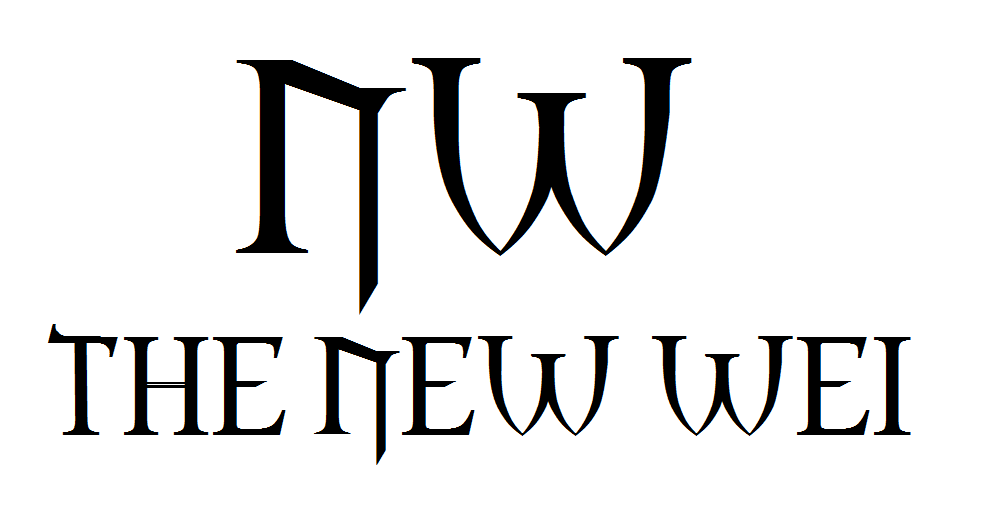The New Wei
The New Wei is many things: a Collective of Independent Authors & Artists; a Literary Arts Movement advocating Diverse, Provocative, Subversive and Significant Authors & Artists; a Salon; and a Publishing Company.
 The New Wei
The New Wei
The New Wei Collective of Independent Authors & Artists consists of the following Members:
 Tejas Desai
Tejas Desai  Vegas K. Jarrow aka Vijay R. Nathan
Vegas K. Jarrow aka Vijay R. Nathan  Kacper Jarecki
Kacper Jarecki  M. C. Allison
M. C. Allison  Willam J. McGee
Willam J. McGee  Chris Stylez
Chris Stylez  W. Lance Hunt
W. Lance Hunt  Annette O. Brown
Annette O. Brown  Ishy Christine Degyansky
Ishy Christine Degyansky  Lorraine Schein
Lorraine Schein  Charlie Boatner
Charlie Boatner  Lancelot Schaubert
Lancelot Schaubert  Lynley Shimat
Lynley Shimat  Olena Jennings
Olena Jennings
You can access a Zine describing each of the Collective Member's Works here:  The New Wei Zine
The New Wei Zine
The New Wei Collective replaced The New Wei Salon that met from March 2023 to December 2024. The goal of the Salon was to bring together authors and artists from different scenes to learn from one another and foster collaborations:  Salon FB Page
Salon FB Page
Follow  The New Wei blog,
The New Wei blog,  The New Wei Wordpress,
The New Wei Wordpress,  The New Wei YouTube page,
The New Wei YouTube page,  The New Wei Facebook page,
The New Wei Facebook page,  The New Wei Substack or Tejas Desai's primary
The New Wei Substack or Tejas Desai's primary  Facebook page
Facebook page
Tejas Desai is also writing feature articles on dynamic, visionary artists in NYC. Here are our first two features:
" The Light Side of the Moon: Scarlett Taylor's Veil"
The Light Side of the Moon: Scarlett Taylor's Veil"
" Cassidy's Circus: Confessions and the NYC Underground Literary Scene"
Cassidy's Circus: Confessions and the NYC Underground Literary Scene"
The New Wei Literary Movement was founded by Tejas Desai in  2012 to promote provocative, dynamic and significant narrative artists. Authors who push the envelope and transmit new ideas and perspectives, whose work reflects their life philosophies and dynamic personalities. Writers who challenge and engage readers with brutal truths and provocative thought, moving the boundaries of literature in the process. Artists who are possessed.
2012 to promote provocative, dynamic and significant narrative artists. Authors who push the envelope and transmit new ideas and perspectives, whose work reflects their life philosophies and dynamic personalities. Writers who challenge and engage readers with brutal truths and provocative thought, moving the boundaries of literature in the process. Artists who are possessed.
| |
These narrative artists can write traditional novels, stories, plays and screenplays, or they can create and disseminate their works through unconventional methods and forms: self-publishing, blogging, social media posts,  zines etc.
zines etc.
The New Wei is also branching out to promote and support provocative artists in other forms, including film, visual art, dance and music.
Like previous "new waves" and art movements of the past (Sturm und Drung, Romanticism etc.) The New Wei will take time to foment a renaissance and influence the cultural scene, but we are determined to help usher in a more dynamic era of literature and art, reflecting the Turbulent Twenties and beyond.
 Some of the other authors The New Wei recognizes are speculative religious novelist
Some of the other authors The New Wei recognizes are speculative religious novelist  Allan Avidano, prolific blogger
Allan Avidano, prolific blogger  Brienne Walsh, grotesque feminist subversives
Brienne Walsh, grotesque feminist subversives  Dylan Krieger and
Dylan Krieger and  Joanna C. Valente, provocative gay authors
Joanna C. Valente, provocative gay authors  Brontez Purnell and the late
Brontez Purnell and the late  Anthony Veasna So, literary terrorist
Anthony Veasna So, literary terrorist  Jay Sizemore, Indo-Guyanese queer pundit
Jay Sizemore, Indo-Guyanese queer pundit  Rajiv Mohabir, and the late comic novelist
Rajiv Mohabir, and the late comic novelist  Richard Livsey. These authors aren't necessarily associated with The New Wei, but they transmit a unique worldview within their respective literary forms.
Richard Livsey. These authors aren't necessarily associated with The New Wei, but they transmit a unique worldview within their respective literary forms.
| |
